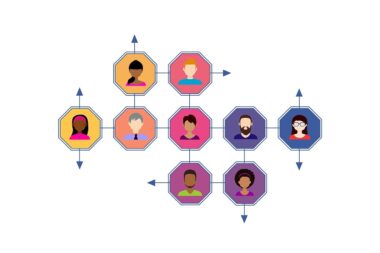Transforming Social CRM with Advanced AI Analytics Tools
The integration of Artificial Intelligence (AI) analytics tools into Social Customer Relationship Management (Social CRM) is revolutionizing how businesses engage with customers. Traditional CRM methods primarily rely on manual data entry and historical sales records, which often miss the dynamic nature of customer interactions today. AI analytics enhance the capabilities of Social CRM by enabling businesses to analyze large datasets in real-time. This development leads to better decision-making, predictive analytics, and personalized marketing strategies. Evaluating social media interactions, customer feedback, and online behavior patterns allows organizations to tailor their offerings more effectively. Implementing these advanced tools helps companies understand customer sentiment, trends, and behaviors. Utilizing AI in Social CRM can increase customer satisfaction and retention rates. Businesses can leverage insights generated from analytics to strategize their engagements, providing value and establishing trust with their audience. The future of Social CRM will increasingly rely on data-driven insights, moving away from instinct-based decisions. As organizations adapt, they can expect a significant boost in performance and a stronger connection with their customers through enhanced communication and improved service delivery.
In the realm of Social CRM, AI enhances customer segmentation, allowing more targeted outreach. By analyzing customers’ online behavior, preferences, and demographics, businesses can categorize their audience for more effective marketing. Advanced AI algorithms can identify patterns that traditional methods might overlook. For instance, machine learning models can predict future buying habits, enabling brands to send personalized recommendations at opportune moments. Implementing such targeted CRM strategies yields better engagement rates, driving sales and customer loyalty. Furthermore, AI analytics facilitates the optimization of social media campaigns by providing real-time reporting on outreach effectiveness. This level of insight is invaluable for adjusting strategies promptly for maximum impact. By harnessing analytical capabilities, marketers can refine messages, identify the best-performing content, and adjust campaigns to resonate deeply with target audiences. This not only enhances customer experiences but also boosts brand loyalty. Companies that utilize AI-driven metrics can pivot quickly to address market changes or consumer needs, ensuring that they remain relevant and competitive. In doing so, they build a strong foundation for long-term customer relationships based on trust and value.
Enhancing Customer Interactions through AI
The capabilities of AI tools extend beyond mere data analysis; they significantly enhance customer interactions. Intelligent chatbots, fueled by AI, engage with customers across various platforms, providing immediate assistance and clearing common queries. These automated systems can handle multiple inquiries simultaneously, making them indispensable for improving response times in Social CRM. Furthermore, AI tools analyze customer interactions to provide personalized responses, effectively mimicking human-like conversation. This fosters a sense of connection between customers and brands, encouraging customers to seek out assistance and engagement proactively. The enhanced experience of rapid response and tailored communication contributes to higher satisfaction levels. Moreover, integrating AI analytics into Social CRM allows businesses to identify key touchpoints within the customer journey, improving overall satisfaction. Understanding where customers experience challenges or excitement can inform future strategies, ensuring consistency in service. Providing seamless interactions creates opportunities for upselling and cross-selling. Organizations utilizing advanced AI systems can benefit from increased efficiency and enhanced communication with their audience. Ultimately, this transformation leads to more meaningful relationships between businesses and their customers.
Data privacy remains a significant concern when leveraging AI analytics within Social CRM frameworks. With increased scrutiny on data usage, businesses must prioritize transparent data management practices. Addressing these concerns ensures customers feel secure when providing their personal information. Compliance with local regulations, such as GDPR, is essential to foster trust, which is critical for brand loyalty. Organizations can implement robust data protection policies that emphasize customer consent and data anonymity. Regular audits and evaluations of AI tools used for data analysis also reinforce secure procedures, assuring customers their information is handled responsibly. Balancing AI analytics with ethical considerations is crucial for sustainable growth in Social CRM. Brands that demonstrate a commitment to safeguarding customer data often enjoy stronger relationships with their clientele. Users value transparency and are likely to remain loyal to organizations that prioritize their privacy. Furthermore, establishing clear communication on how data is collected, stored, and used empowers customers, fostering a culture of trust. Ultimately, businesses that navigate these complexities successfully find themselves ahead of competitors in fostering trust and enhancing customer experiences.
The Importance of Predictive Analytics in Social CRM
Predictive analytics plays a vital role in enhancing Social CRM when integrated with AI tools. By forecasting consumer behavior, these tools allow organizations to identify potential opportunities and challenges. Historical data coupled with AI algorithms can help businesses anticipate trends, resulting in proactive marketing strategies. Brands can tailor their campaigns to meet upcoming customer demands, subsequently improving satisfaction and loyalty. Predictive analytics also assist businesses in identifying at-risk customers, enabling targeted retention strategies that address specific concerns. Through careful tailoring, organizations can regain customer trust and loyalty. Moreover, these analytics can inform product development by identifying gaps in the market or areas that require improvement. By understanding consumer preferences, businesses can innovate more effectively and provide relevant offerings. The combination of AI-driven predictive analytics with Social CRM can significantly enhance customer engagement initiatives. Companies can create dynamic marketing messages that resonate with audiences, making them feel valued. As the landscape of consumer engagement evolves, businesses leveraging predictive analytics within their CRM strategies can secure a competitive edge and ensure long-term success.
Furthermore, the impact of AI on data visualization enhances the effectiveness of Social CRM. Visualization tools can represent complex data in an accessible manner, helping stakeholders identify trends and insights quickly. By translating analytics into visual formats, such as charts or graphs, businesses can communicate findings dynamically. This visual clarity fosters informed decision-making among teams, streamlining the process of strategy formulation. Teams equipped with effective visualization tools can collaborate better, encouraging cross-departmental understanding of customer insights. In doing so, they create a unified approach for customer engagement, ensuring everyone maintains alignment on goals. Additionally, enhanced data visualization enables organizations to present their findings to external stakeholders, such as investors or partners, effectively. Compelling presentations can attract attention and foster trust in a brand’s capabilities. Utilizing AI technologies to streamline data visualization ultimately cultivates a more data-driven culture within the organization. As employees become more familiar with data insights and analytics, they can integrate these findings into their everyday work. Organizations that prioritize data visualization find that their teams are more agile, responsive, and capable of delivering exceptional results.
Conclusion: Evolving Future of Social CRM
In conclusion, the future of Social CRM is undeniably intertwined with the advancements in AI analytics tools. As organizations adopt these technologies, they can expect to enhance customer relationships significantly. The integration of AI-driven insights fosters a deeper understanding of consumer behavior, guiding marketing strategies, customer interactions, and product development. This dynamic approach ensures brands remain relevant while meeting evolving customer expectations. Moreover, the emphasis on data privacy and ethical practices strengthens consumer trust, ultimately driving retention. As predictive analytics gain traction, businesses will become more adept at anticipating market changes and addressing them proactively. Embracing advanced AI tools transforms how companies perceive and manage customer relationships, facilitating a shift toward data-driven decision-making. As Social CRM evolves, brands equipped with cutting-edge analytics will thrive in increasingly competitive landscapes. Continuous innovation and adaptation to technological advancements, combined with a commitment to ethical data practices, will set successful organizations apart. In essence, the interplay of AI and Social CRM marks a paradigm shift, one that promises unprecedented opportunities for engagement, loyalty, and sustainable growth.
To navigate this transformation effectively, businesses must invest in training their teams on AI tools and analytics. Fostering a culture of continuous learning will enable employees to harness the full potential of these technologies. Upskilling employees in analytical skills can drive greater engagement and innovation within organizations. Furthermore, collaboration between departments ensures a holistic approach to utilizing Social CRM and AI insights. Cross-functional teams can explore innovative strategies that leverage the combined strengths of Social CRM and AI capabilities. The convergence of these domains will be critical in shaping customer experiences in the coming years. Organizations that embrace this integrated approach can expect to be at the forefront of their industries. Forward-thinking companies will invest in research and development of new AI tools to enhance their Social CRM efforts continually. They will also engage in partnerships that enable them to access advanced technologies and expertise. This proactive stance fosters agile adaptation while ensuring they remain competitive. In conclusion, investing in Social CRM and AI analytics technologies solidifies a company’s foundation for building stronger customer relationships and driving business success. The impact of these tools will echo for years to come, enhancing interactions.





